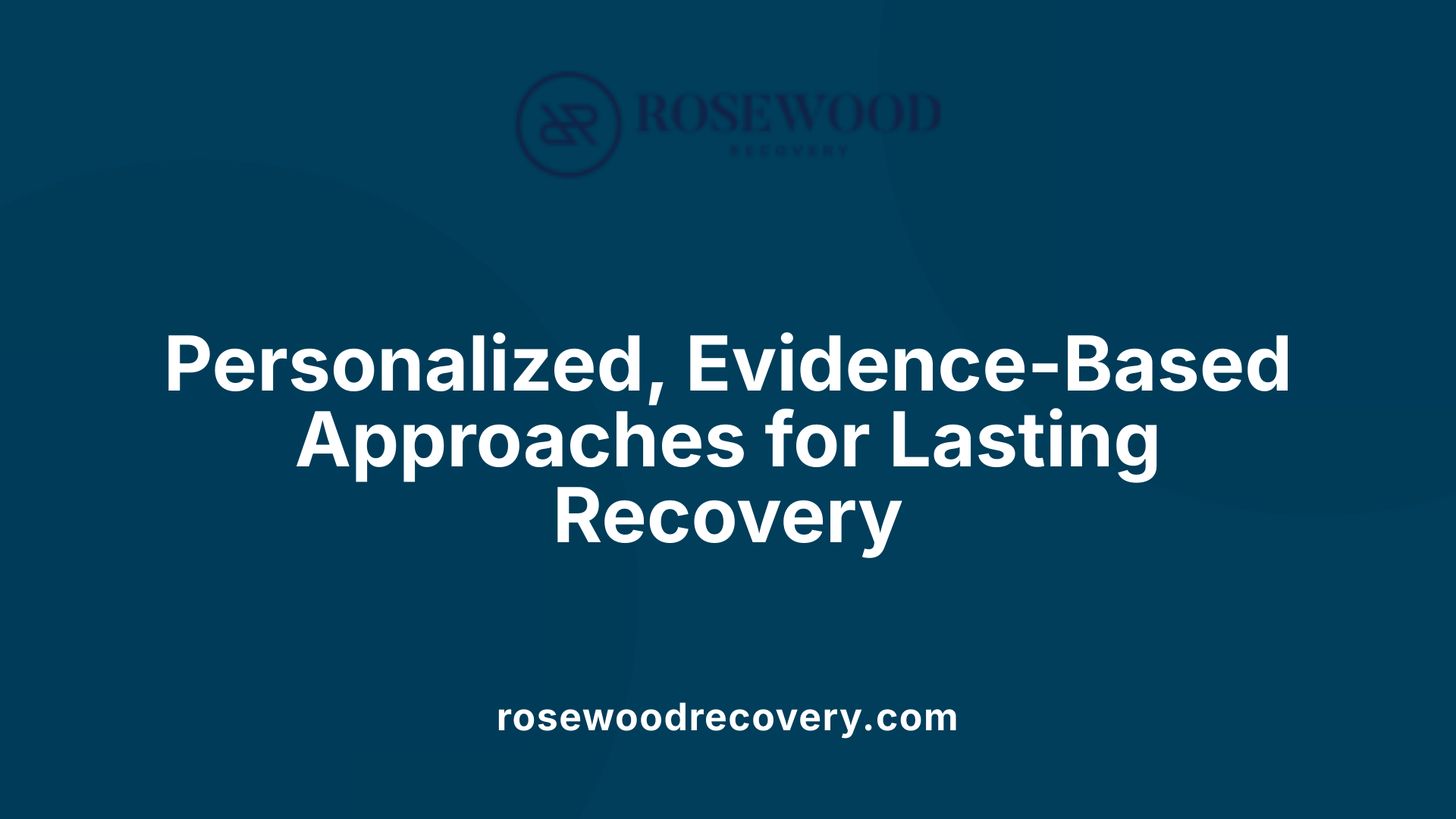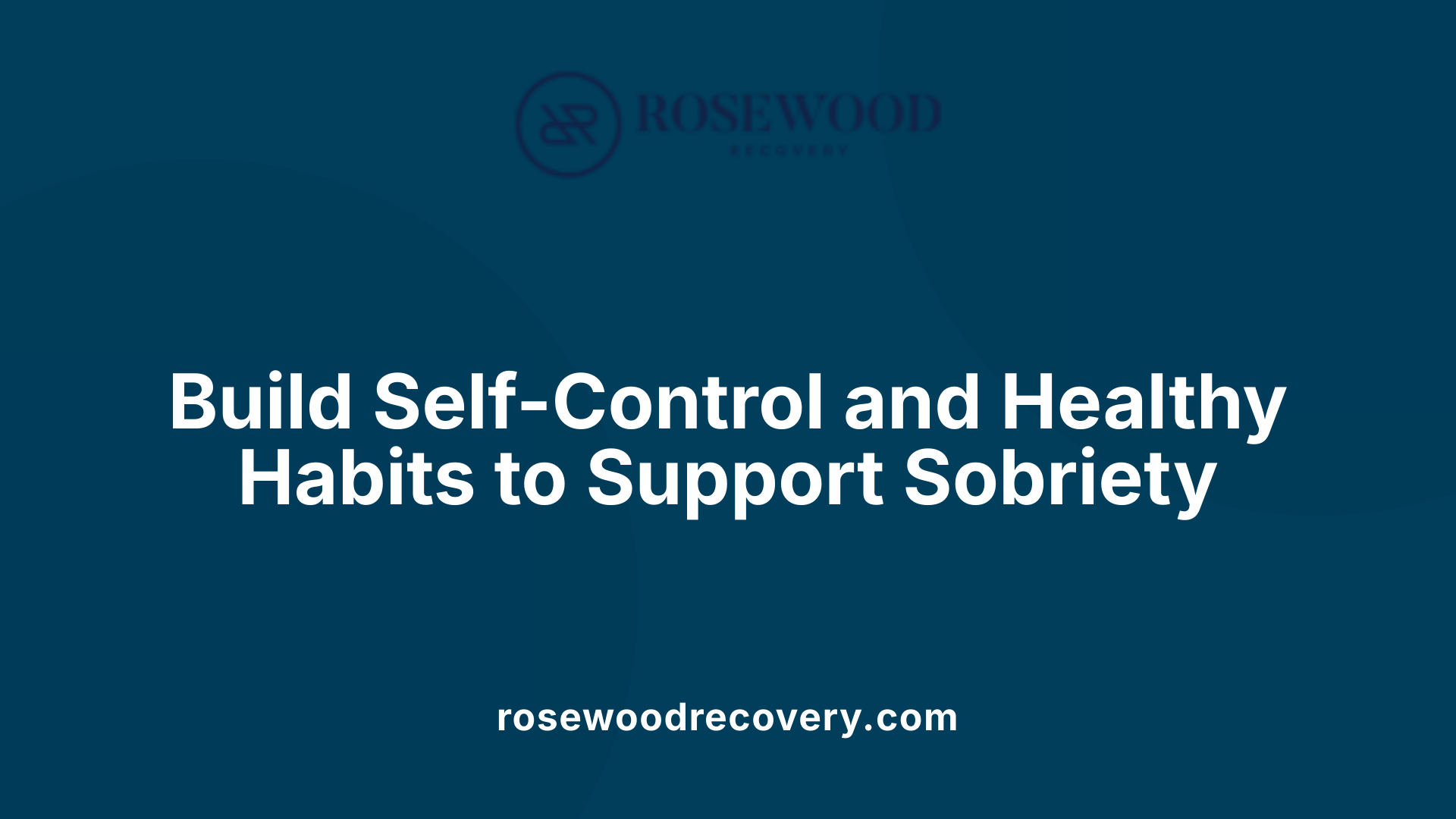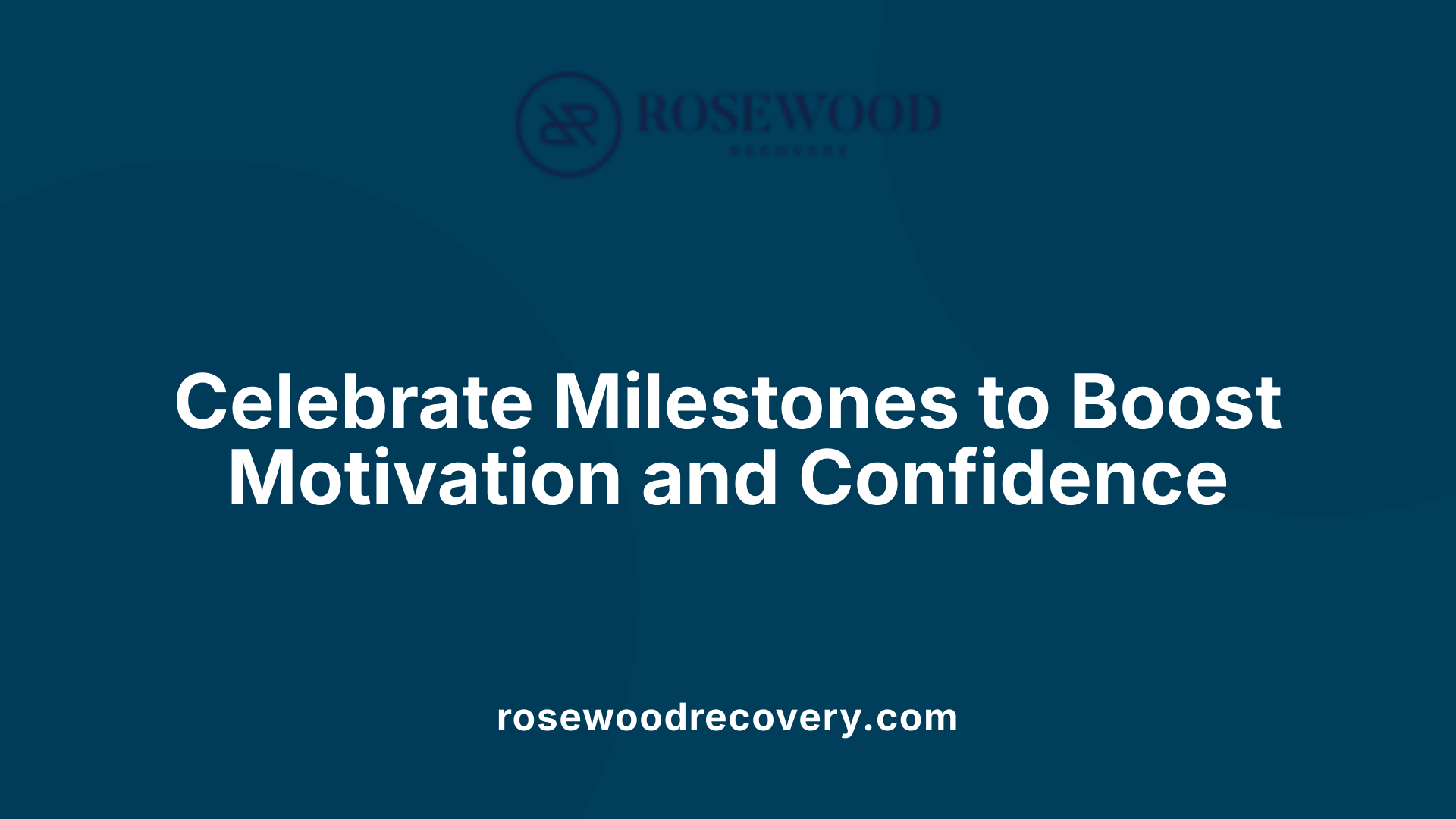The Foundation of Recovery: Why Routine Matters
Establishing a structured daily routine is a cornerstone of effective recovery for individuals overcoming substance abuse and mental health issues. This approach fosters stability, reduces stress, and strengthens resilience—the essential ingredients for long-term sobriety. Drawing from comprehensive treatment services and evidence-based practices developed by leaders in addiction care, individuals can design a recovery-focused schedule that supports physical, emotional, and social well-being.
Understanding Comprehensive Treatment Services for Addiction and Mental Health
What are comprehensive treatment services for substance abuse and mental health issues?
Comprehensive treatment services for substance abuse and mental health issues involve a multidisciplinary approach addressing both addiction and any co-occurring mental health conditions. These services integrate counseling, behavioral therapies, medication-assisted treatment, and participation in support groups to foster sustained recovery.
Multidisciplinary treatment approaches
Treatment programs typically combine various therapies, including cognitive-behavioral therapy (CBT), motivational interviewing, and family counseling. This holistic model supports both the physical and psychological aspects of addiction.
Counseling and behavioral therapies
Behavioral therapies help patients modify harmful behaviors and develop coping strategies. They often include individual, group, and family sessions tailored to the individual's needs.
Medication-assisted treatment (MAT)
Evidence-based medications like buprenorphine and methadone are used to treat opioid dependence. These medications, combined with counseling, reduce cravings and withdrawal symptoms, enhancing recovery success.
Support group participation
Participation in peer support groups such as Alcoholics Anonymous (AA) or Narcotics Anonymous (NA) provides accountability, community, and shared experiences that are vital for long-term sobriety.
Comorbid mental health and addiction treatment
Many treatment programs address dual diagnoses by offering integrated care for mental health disorders alongside substance use treatment, recognizing the interplay between these conditions.
Accessing treatment resources
Organizations like SAMHSA provide extensive resources, including FindTreatment.gov, to help individuals locate appropriate treatment facilities offering various levels of care. Support helplines such as the National Helpline (1-800-662-HELP) are available 24/7 to guide people toward needed services.
This integrated treatment framework ensures individuals receive comprehensive care tailored to their unique needs, increasing the likelihood of successful recovery and improved mental health.
How Treatment Programs Effectively Address Various Forms of Addiction

How do treatment programs address various forms of addiction effectively?
Treatment programs employ comprehensive and individualized approaches to tackle addiction's complex nature. These plans are crafted to meet each person's unique needs, involving various components that work together for effective recovery.
Individualized Treatment Plans. Tailoring treatment to the severity and specific substance use patterns ensures that each person's mental, emotional, and physical challenges are addressed. This individualized care boosts engagement and outcomes.
Evidence-Based Therapies. Programs incorporate scientifically supported behavioral therapies such as Cognitive Behavioral Therapy (CBT), motivational interviewing, and contingency management. These help modify harmful thinking and behaviors while developing coping strategies.
Medication-Assisted Treatment (MAT). For opioid and other substance dependencies, medications like methadone, buprenorphine, and naltrexone reduce cravings and withdrawal symptoms, supporting physical recovery alongside counseling.
Support Systems in Different Care Settings. Treatment may occur in outpatient, inpatient, residential, or partial hospitalization contexts. Each setting provides appropriate structure and support based on individual severity, with access to peer groups like AA or NA enhancing community support.
Relapse Prevention. Programs emphasize building healthy routines, stress management, and identifying triggers to prevent relapse. Techniques include ongoing therapy, mindfulness, and engagement in meaningful daily activities to reinforce sobriety.
Long-Term Recovery Maintenance. Recovery is viewed as an ongoing process. Continuous support includes aftercare, support group participation, professional counseling, and the use of digital tools like sobriety apps to track progress and adapt routines.
Through this integrated model, treatment programs address addiction’s multifaceted impact while fostering sustained recovery and improved quality of life.
The Importance of Establishing a Structured Recovery Routine

Creating stability and security
A structured daily routine provides a foundation of stability and security essential for those recovering from substance use disorder. This predictable framework replaces the chaos and uncertainty often experienced during addiction, giving individuals a sense of control and normalcy.
Replacing fear and instability
Early recovery can be marked by fear and instability. By establishing consistent routines, individuals can transform these feelings into stability and security, which fosters confidence and emotional resilience during a vulnerable time.
Building self-control and healthy habits
Consistency in daily activities helps develop self-control and establishes healthy habits. Regular practices such as scheduled meals, exercise, and sleep contribute to physical well-being and support the mental focus necessary to resist cravings and maintain sobriety.
Structure’s role in relapse prevention
Structured routines minimize triggers by reducing boredom and chaos, common relapse risk factors. Activities like therapy, support group meetings, and hobbies fill time with meaningful engagement, while stress management techniques such as mindfulness meditation help regulate anxiety, further supporting long-term recovery.
Routine's impact on mental and physical health
Maintaining regular sleep patterns, balanced nutrition, and physical activity enhances both mental and physical health, which are often compromised during addiction. This holistic approach supports co-occurring health conditions, improves mood, and builds resilience against relapse.
Key Components of a Recovery-Focused Daily Schedule
Regular Sleep Schedule
Maintaining a consistent sleep routine is foundational for recovery. Waking up and going to bed at the same times daily, ensuring about eight hours of rest, supports both physical and mental health. Good sleep also helps mitigate common early recovery issues such as sleep disturbances.
Nutritious Meals
Eating balanced meals rich in complex carbohydrates, proteins, vegetables, and fruits fuels the body and mind. Proper nutrition enhances energy levels, mental clarity, and skin health, which are essential for sustained recovery.
Exercise and Physical Activity
Engaging in regular physical activities, such as walking, yoga, or moderate exercise, uplifts mood and enhances physical well-being. Including these activities in the daily routine fosters a sense of accomplishment and aids in building structure.
Personal Hygiene
Daily self-care habits, including personal hygiene, contribute to improved self-esteem and support a normalized lifestyle. They help individuals feel more confident and prepared to face daily challenges.
Support Group Meetings
Attendance at support groups like Alcoholics Anonymous (AA), Narcotics Anonymous (NA), or SMART Recovery provides critical community support, accountability, and shared experience. Including these meetings in the daily schedule strengthens commitment to sobriety.
Work and Chores
Balancing work responsibilities and household chores offers structure and a sense of purpose. Structured daily tasks reduce boredom and the associated risk of relapse by keeping individuals productively engaged.
Spiritual and Relaxation Practices
Incorporating meditation, mindfulness, journaling, or time in nature promotes holistic healing. These practices reduce stress and foster emotional resilience, crucial for managing triggers.
Hobbies and Social Interactions
Pursuing hobbies and maintaining social connections provide healthy distractions and build confidence. These activities enrich life beyond addiction and support long-term recovery.
A well-rounded daily schedule addressing these components can create a stable, nurturing environment that replaces previous harmful habits with healthy ones while fostering overall well-being in recovery.
Integrating Self-Care and Stress Management into Recovery
Prioritizing Self-Care
In addiction recovery, dedicating time to self-care is essential for maintaining mental and physical health. Engaging in hobbies and activities that bring joy helps prevent over-scheduling and stress, which could otherwise lead to relapse. A balanced routine that includes rest, leisure, and personal interests supports emotional wellbeing and resilience.
Preventing Over-Scheduling
While structure is important, avoiding an overly packed schedule is crucial. Over-scheduling can increase stress, reduce quality rest, and sap energy needed for recovery efforts. Self-care encourages mindful pacing of daily activities, ensuring time for relaxation and recovery without feeling overwhelmed.
Mindfulness, Meditation, and Breathing Techniques
Incorporating mindfulness practices like meditation and deep breathing exercises into daily routines helps manage anxiety and enhances focus. These techniques promote a state of calm and improve the ability to respond thoughtfully rather than react impulsively to stressors that might trigger relapse.
Managing Anxiety and Triggers
Stress often acts as a catalyst for relapse in recovery. By practicing self-care routines alongside mindfulness-based stress management, individuals can better identify and control anxiety. This management helps lessen the impact of triggers such as negative emotions or environments associated with past substance use.
Reducing Relapse Risk Through Stress Control
Effective stress control is a protective factor against returning to substance use. Regular incorporation of stress reduction methods, including meditation, breathing techniques, and engagement in enjoyable hobbies, builds coping skills that reduce relapse risk. The ongoing support of therapists and support groups can further reinforce these strategies.
| Aspect | Explanation | Benefit |
|---|---|---|
| Prioritizing Self-Care | Involves activities promoting physical and mental wellness | Enhances emotional strength, prevents burnout |
| Avoiding Over-Scheduling | Balances daily tasks with rest to reduce stress | Maintains energy and a sustainable routine |
| Mindfulness & Breathing | Practices that calm the mind and body | Improves focus, reduces anxiety |
| Managing Anxiety & Triggers | Techniques to recognize and lessen stress-related triggers | Decreases likelihood of impulse relapse |
| Stress Control for Relapse Prevention | Consistent use of calming strategies and hobbies | Builds resilience and reduces relapse risk |
Leveraging Support Networks and Professional Guidance

What is the role of therapists, sponsors, and support groups in recovery?
Therapists, sponsors, and support groups form a critical backbone for anyone pursuing long-term sobriety. Therapists offer personalized counseling and clinical interventions such as Cognitive Behavioral Therapy (CBT), addressing both addiction and co-occurring mental health issues. Sponsors provide practical advice, accountability, and motivational support rooted in lived experience. Support groups like Alcoholics Anonymous (AA), Narcotics Anonymous (NA), SMART Recovery, and SOS meetings create a community environment that shares understanding, encouragement, and collective strength.
How can one build a reliable support network?
Building a solid support network involves including family, friends, peers, mentors, therapists, and sponsors who provide emotional backing and practical guidance. Engaging in structured group meetings and reaching out to trusted individuals helps create stability. Consistent communication and participation in these networks enhance resilience and prevent isolation, a risk factor for relapse.
What professional treatment options are available?
Professional treatment frequently incorporates structured therapies such as CBT, yoga, and art therapy. These approaches cater to mental, emotional, and physical well-being, broadening recovery beyond abstinence by fostering mindfulness, stress management, and creative expression.
How can digital tools and apps assist in recovery?
Digital tools like sobriety tracking apps, meditation apps, and schedule management apps empower individuals to monitor their progress, plan daily routines, and practice mindfulness. Habit trackers help identify behavioral patterns and maintain accountability, supporting consistent adherence to recovery goals.
Why is ongoing counseling and guidance important?
Continuous counseling provides longitudinal support, helping individuals adapt routines as life circumstances change. It assists in developing relapse prevention strategies, managing triggers, and reinforces self-care practices. Regular professional guidance ensures recovery is dynamic, sustainable, and responsive to evolving needs.
Flexibility and Adaptability in Recovery Routines
Why Is Flexibility Important in Daily Recovery Schedules?
Recovery routines provide stability, but flexibility is vital to prevent rigidity that may lead to frustration or burnout. Adapting routines allows individuals to handle unexpected life events without disrupting progress, sustaining motivation in the long run.
How Does Flexibility Prevent Over-Obsession and Burnout?
Strict adherence without adaptability can cause stress and feelings of failure if schedules are missed. Allowing room for adjustment helps maintain a balanced mindset, reducing pressure and avoiding relapse triggers associated with burnout.
How Can Recovery Routines Accommodate Life Changes?
Incorporating flexibility means routines can evolve with changes like work shifts, family needs, or health. By being adaptable, routines remain relevant and supportive, enhancing sustainable sobriety.
How to Balance Structure With Adaptability?
While structure supports consistency, integrating adaptable elements such as variable exercise times or alternative self-care practices ensures routines remain manageable. This balance promotes both stability and responsiveness to daily demands.
What Are Tips for Reevaluation and Progress Tracking?
Regularly reviewing and adjusting routines is crucial. Tools like habit trackers or journaling can help identify patterns and areas for improvement. Setting attainable goals and seeking support from therapists or sponsors encourages continuous progress without rigidity.
Celebrating Progress and Sustaining Motivation in Recovery

Why is acknowledging milestones important in recovery?
Recognizing milestones in recovery, such as days sober or personal achievements, provides tangible evidence of progress. These markers help build self-esteem and reinforce the commitment to sobriety by showing that positive change is achievable and ongoing.
How can rewarding achievements support motivation?
Rewarding oneself for meeting recovery goals, whether through small treats or meaningful experiences, reinforces positive behavior. These rewards serve as motivation to maintain healthy habits and inspire continued effort in overcoming addiction.
In what ways does building self-esteem aid recovery?
Developing self-esteem through celebrating success fosters confidence in one’s ability to stay sober. A strong sense of self-worth empowers individuals to resist cravings and handle the challenges of recovery more effectively.
What strategies help maintain motivation throughout recovery?
Consistent routines, supportive social networks, and tracking progress keep motivation high. Regularly setting attainable goals and using tools like habit trackers or apps facilitate ongoing commitment and self-monitoring.
How does positive reinforcement prevent relapse?
Positive reinforcement replaces fear and instability with feelings of accomplishment and security. By acknowledging achievements and rewarding them, the brain associates recovery with positive outcomes, reducing the likelihood of relapse.
Celebrating progress involves more than just recognition—it creates a cycle of motivation, self-confidence, and structured routine that supports long-term recovery success.
Sustaining Recovery Through Routine and Support
A well-crafted daily routine remains vital in supporting sobriety and mental health throughout the recovery journey. By integrating evidence-based treatment practices, structured activities, self-care, and flexible adaptability, individuals can transform their lifestyles into ones that foster resilience, purpose, and wellness. Crucially, ongoing professional guidance and strong support networks ensure that recovery routines evolve with life’s demands, helping maintain stability and reduce the risk of relapse. The journey to recovery is ongoing, but a consistent, recovery-focused daily routine provides the critical foundation necessary for long-term success and a healthier future.
References
- Home | SAMHSA - Substance Abuse and Mental Health ...
- Routines That Promote Sobriety
- Why Structure and Routine Are Important in Recovery
- How to Build a Daily Routine in Recovery
- Build a Life You Love: How Routines Help Your Recovery
- Effective Tips for Long-Term Mental Health and Sobriety
- What Types of Addiction Treatment are Available?




